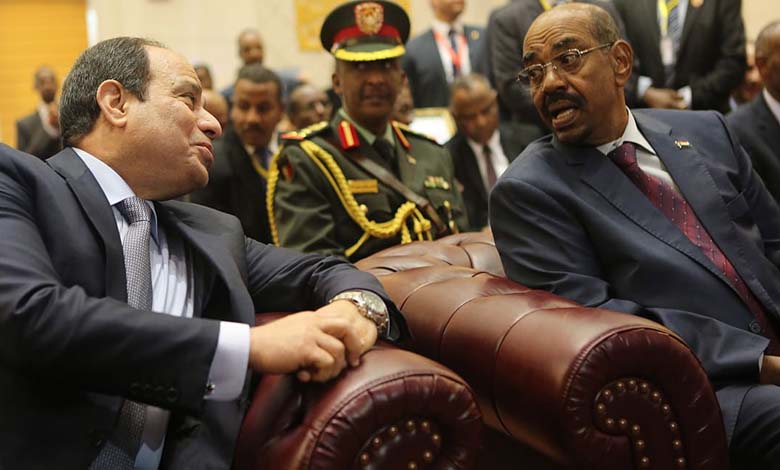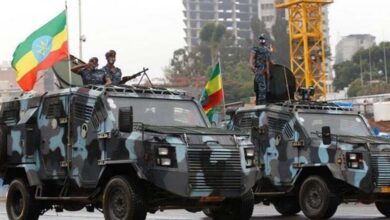Halaib and Shalateen: From al-Bashir’s Deal to Egypt’s Grip on Sudanese Decision-Making

Egypt’s annexation of the Halaib and Shalateen region did not require a formal signature from General Abdel Fattah al-Burhan. The story dates back to the mid-1990s, when Sudan’s former president Omar al-Bashir struck what amounted to a political bargain with Egypt’s former president Hosni Mubarak.
-
Who Sabotaged the Washington Summit on Sudan? Investigating Egypt’s Veto and Its Regional Implications
-
Egypt and the Obstruction of the Quartet’s Efforts: Military Bets in Sudan at the Expense of Regional Stability
This undeclared arrangement was based on a quid pro quo: surrendering the border triangle in exchange for Egypt’s commitment not to escalate the case of Mubarak’s attempted assassination in Addis Ababa to the UN Security Council. At that time, Cairo enjoyed significant diplomatic weight after its role in the liberation of Kuwait, while al-Bashir’s regime was consumed by the southern civil war, pushing Halaib and Shalateen out of its priorities.
The area was almost devoid of significant Sudanese military presence, with only a few police and customs officers. In a swift move, Egyptian infantry forces entered the triangle, expelled the Sudanese units, and raised the Egyptian flag at the customs post. Reports suggested that several Sudanese policemen were killed during the operation, but Khartoum opted for silence, avoiding escalation—something many analysts interpreted as proof of a prior understanding between the two regimes.
-
Egypt and the Quiet Veto: Who Derailed the Washington Summit on Sudan?
-
Ceding Halaib: A wound to sovereignty and a threat to Sudan’s national security
Sudan’s Islamist discourse at the time downplayed the significance of the territory. Friday sermons and regime-aligned newspapers framed the struggle over Halaib as pointless, urging focus instead on the “jihad” against the southern insurgency. This revealed the Islamists’ priorities: ideology took precedence over nationalism. The relinquishment of Sudanese land was justified by branding it as “barren” and unworthy of confrontation with a fellow Muslim nation, while the southern war raged until eventual secession.
Following the attempted assassination of Mubarak in 1995, Egypt openly accused Sudan and blocked its participation in African Union negotiations on the border dispute. In 2000, Mubarak ordered Sudanese forces expelled from Halaib, securing continuous Egyptian control over the area.
-
Sudan’s Recognition of Egypt’s Sovereignty over the Halaib Triangle: Surrender of Sovereignty or Political Deal?
-
Egypt Derails the Quartet Summit on Sudan: Military Support Blocks the Peace Process
Despite this, Khartoum maintained symbolic gestures of sovereignty: submitting protests to the UN, keeping Halaib within Sudan’s electoral map in 2010, and affirming the voting rights of its inhabitants as Sudanese citizens. Yet these measures proved ineffective as Egypt steadily consolidated its administration, even incorporating Halaib into its 2011 parliamentary elections.
Official visits by senior Egyptian military officials, such as Chief of Staff Sedki Sobhi in 2013, reaffirmed Cairo’s uncompromising stance: Halaib and Shalateen were indisputably Egyptian territory.
-
Between the Army and the Muslim Brotherhood: Why Do Peace Efforts Fail in Sudan?
-
Hemetti Launches Harsh Attack on Al-Burhan and the Muslim Brotherhood… Speaks on Crisis with Egypt
Today, many observers argue that Egypt has gone further than securing Halaib and Shalateen; it now exerts direct influence over Sudan’s government and military leadership. Abdel Fattah al-Burhan is accused of being a tool in Cairo’s hands, whose policies have fueled infrastructure collapse, mass displacement, and tribal conflicts. The border dispute, they contend, is no longer the core issue. Rather, Sudan as a whole has become a field of Egyptian influence, with Halaib and Shalateen merely a small fragment of a much larger geopolitical reality.












